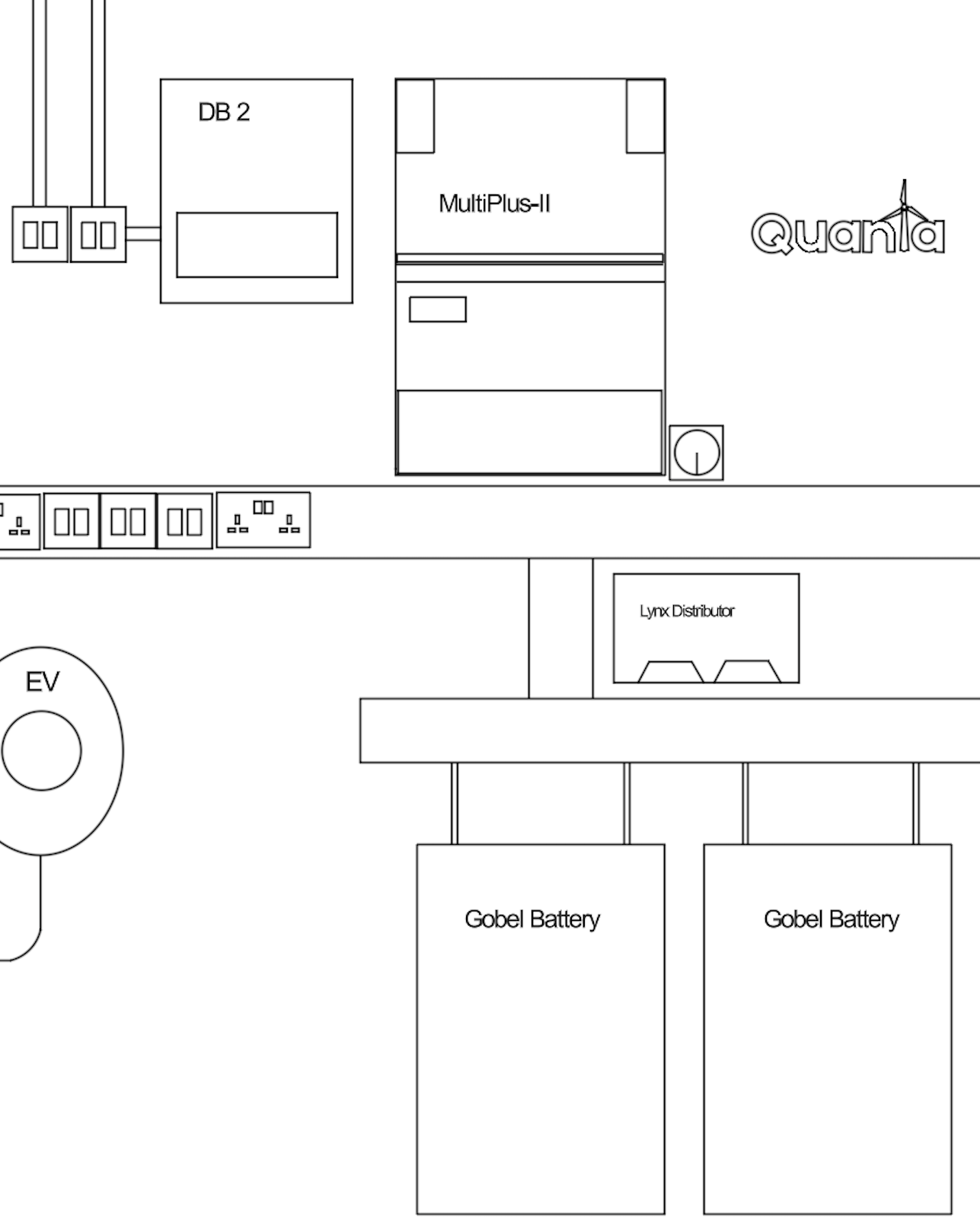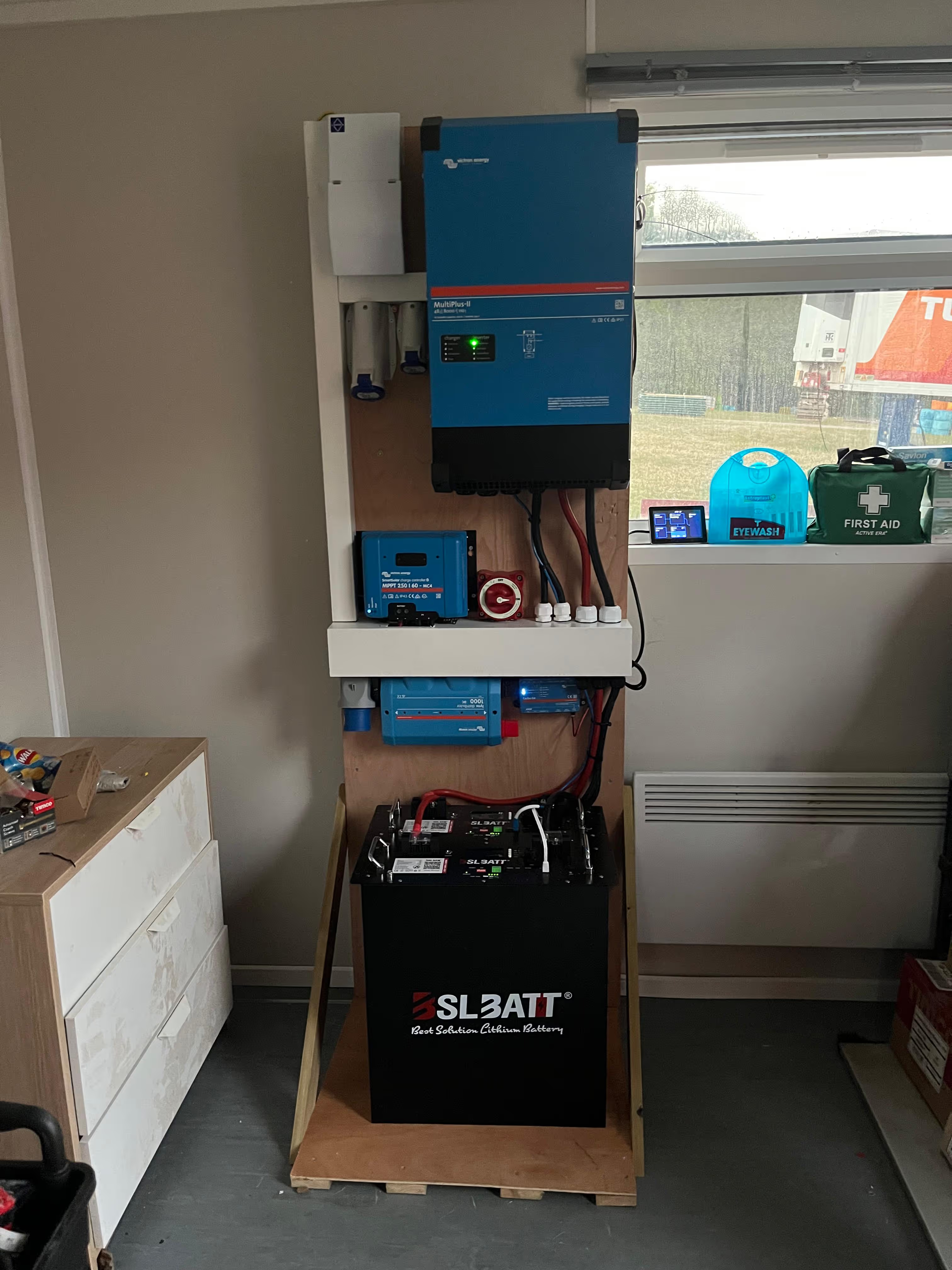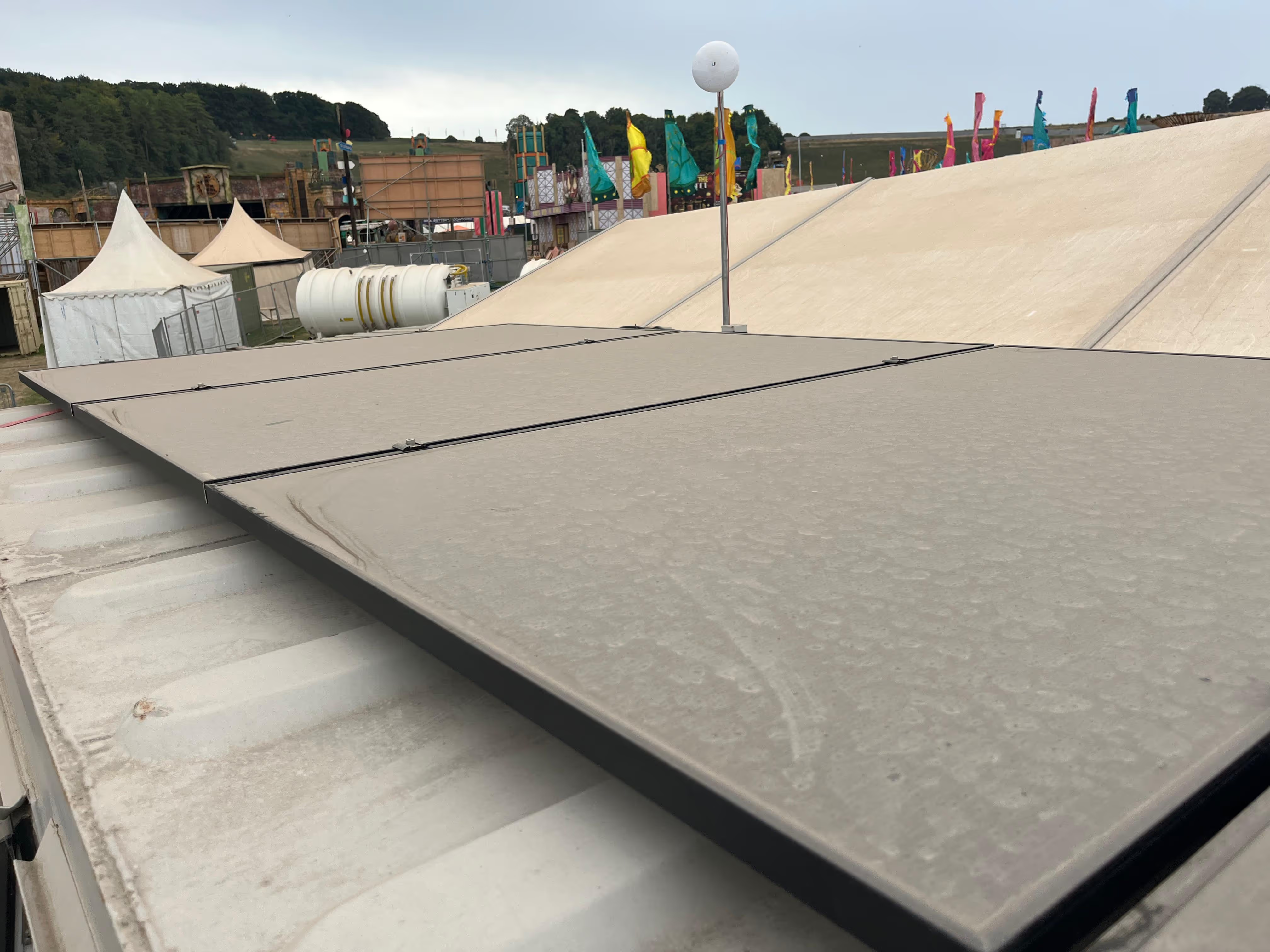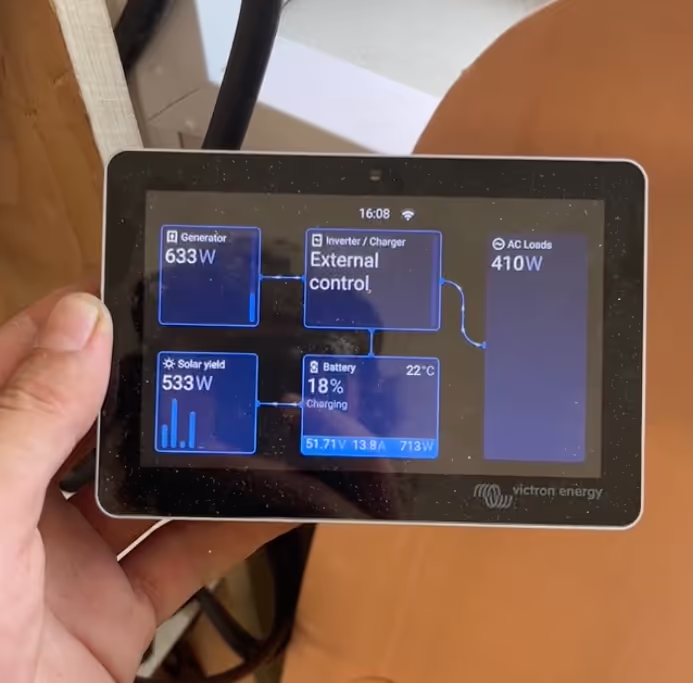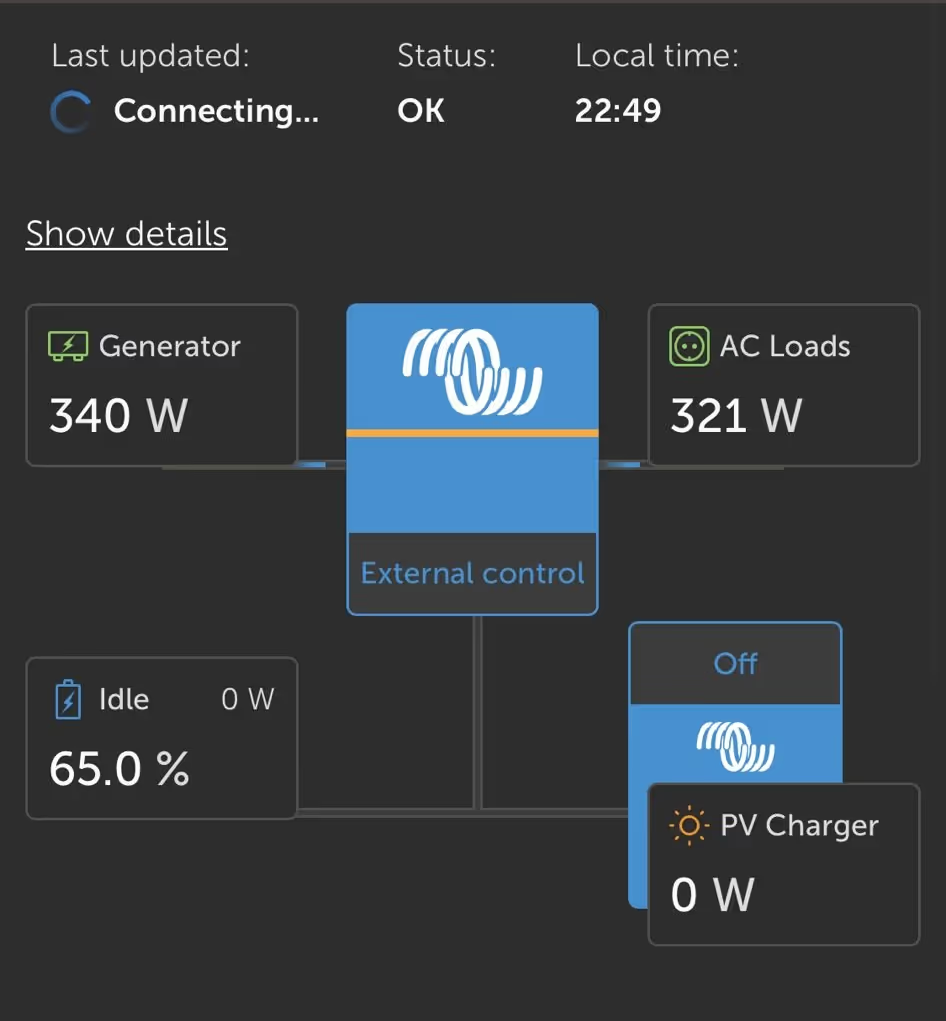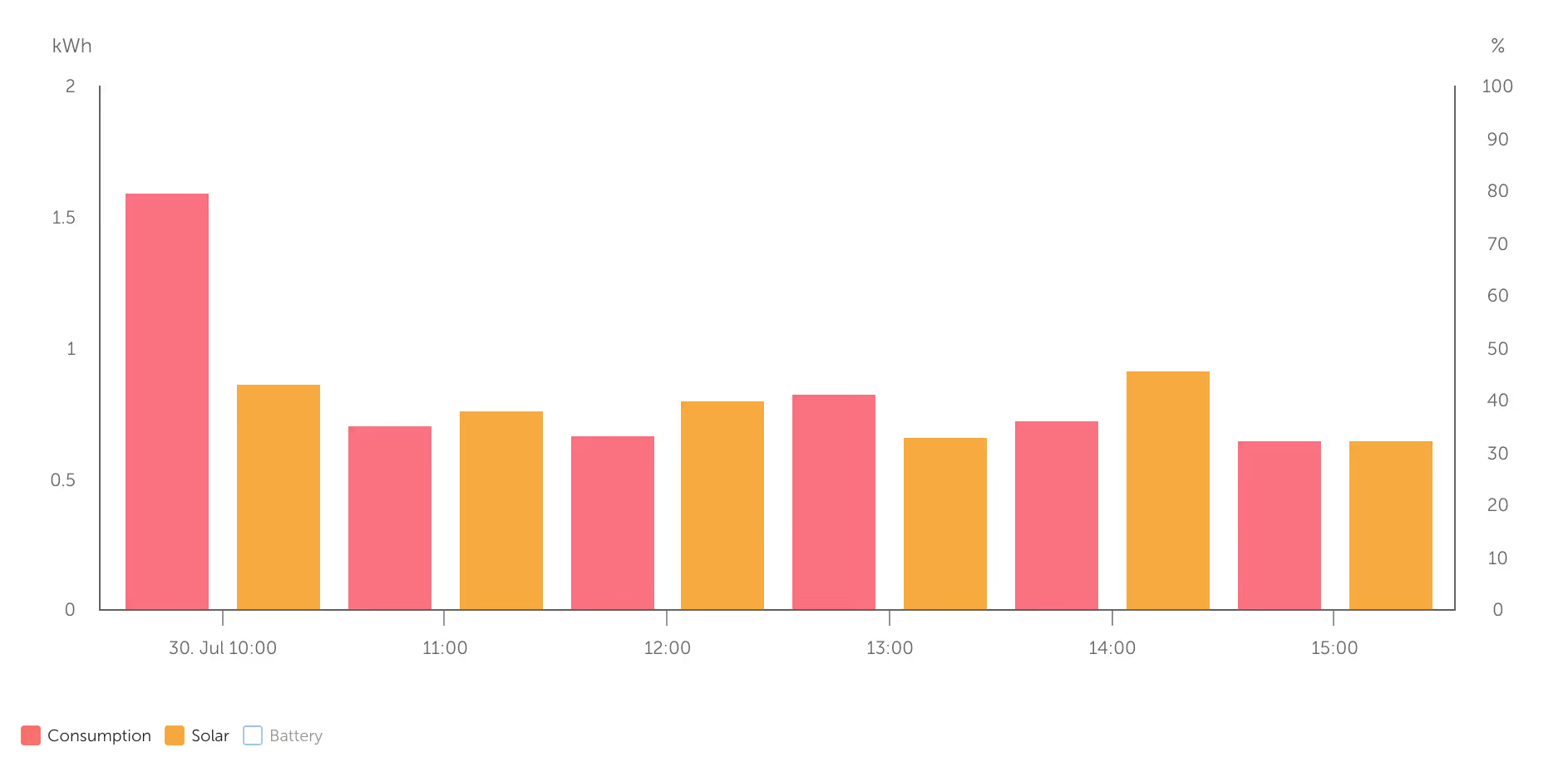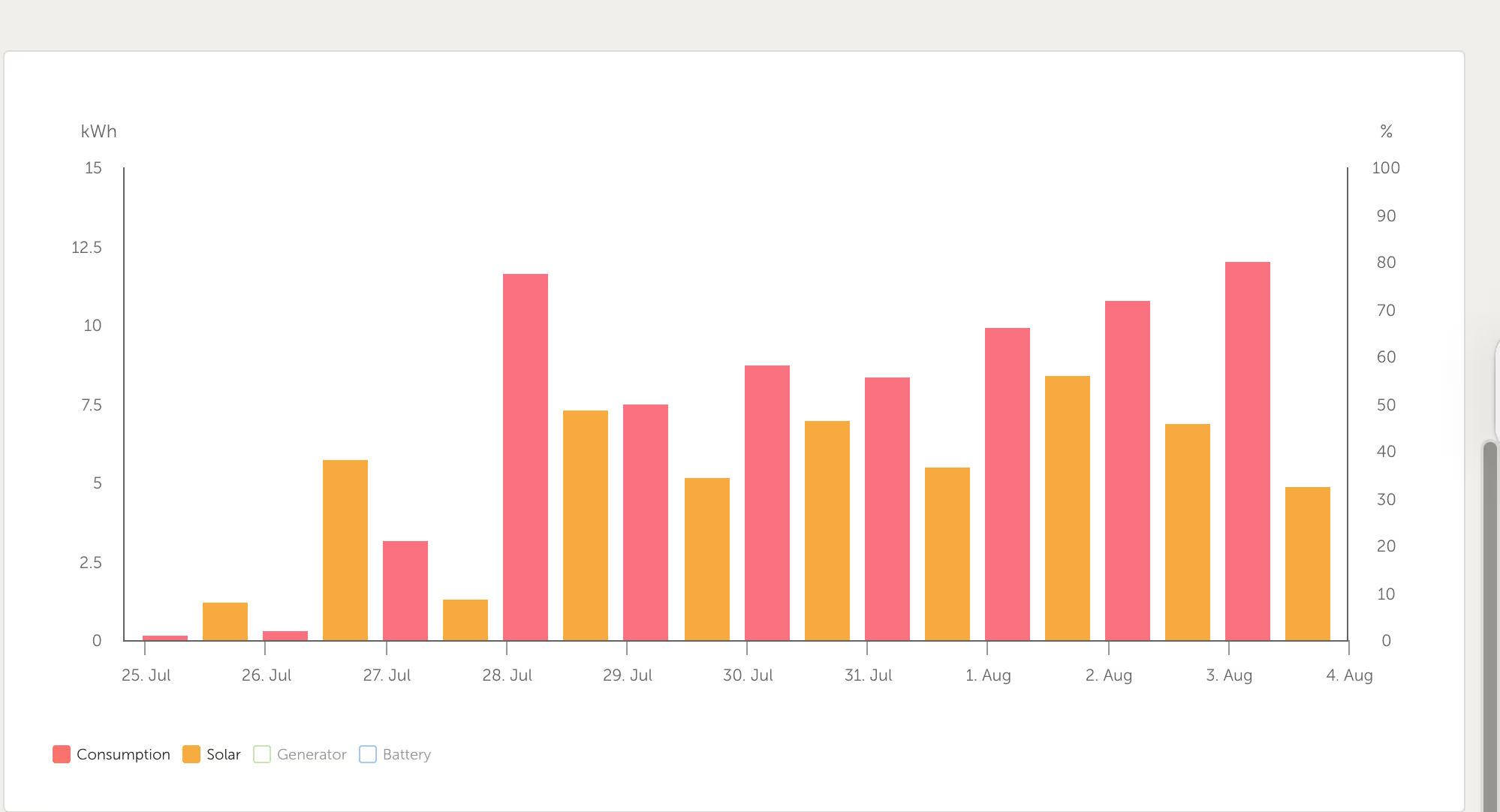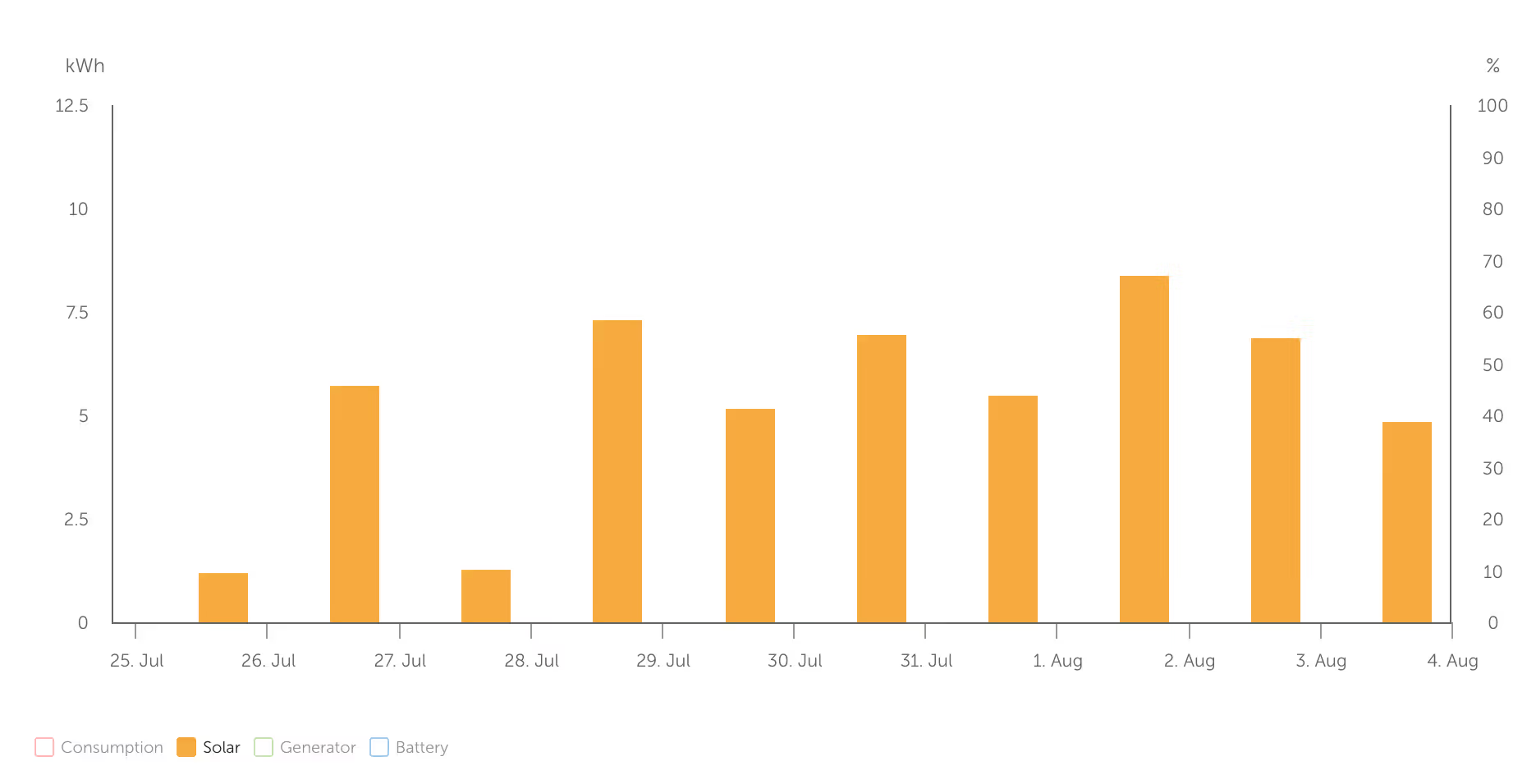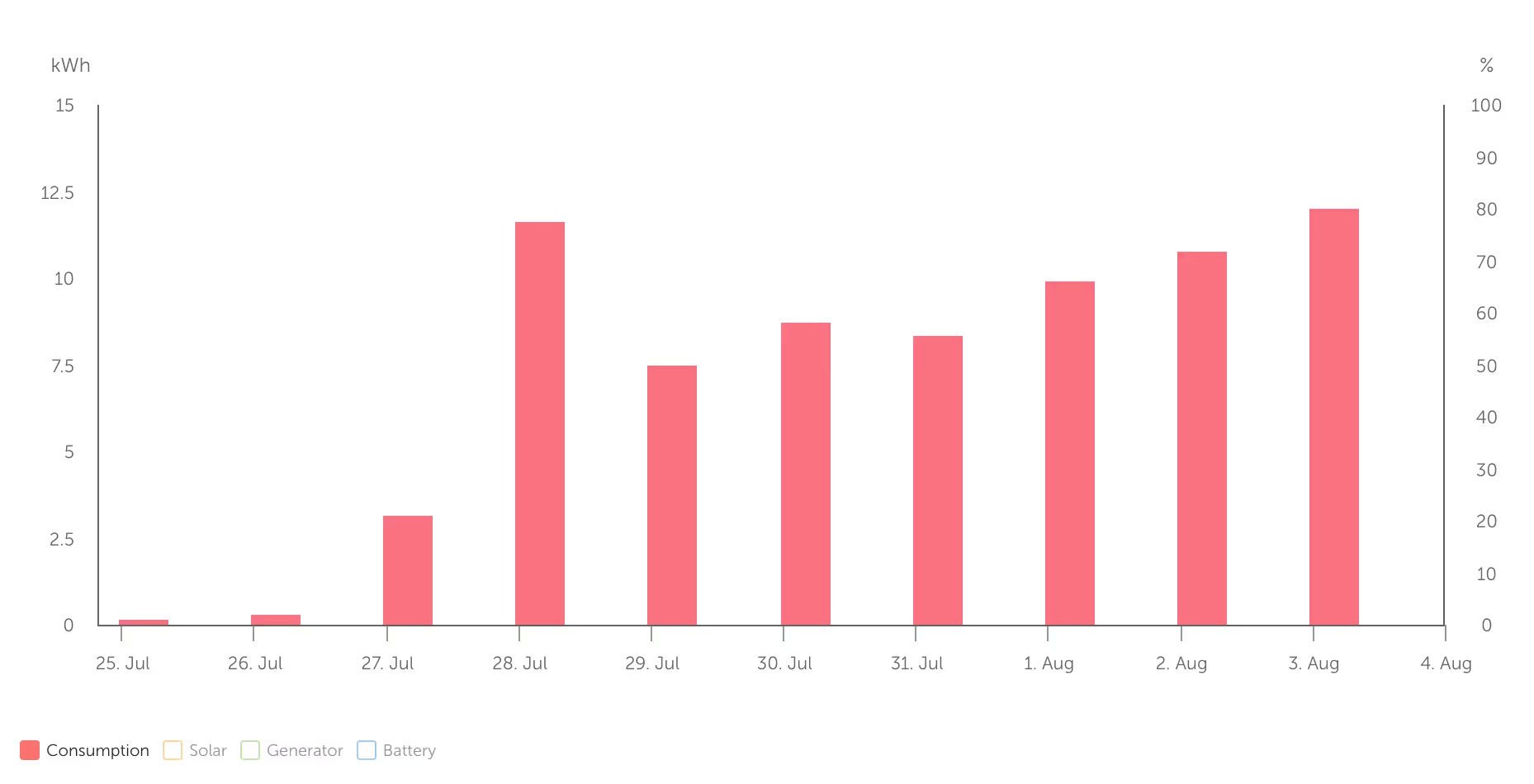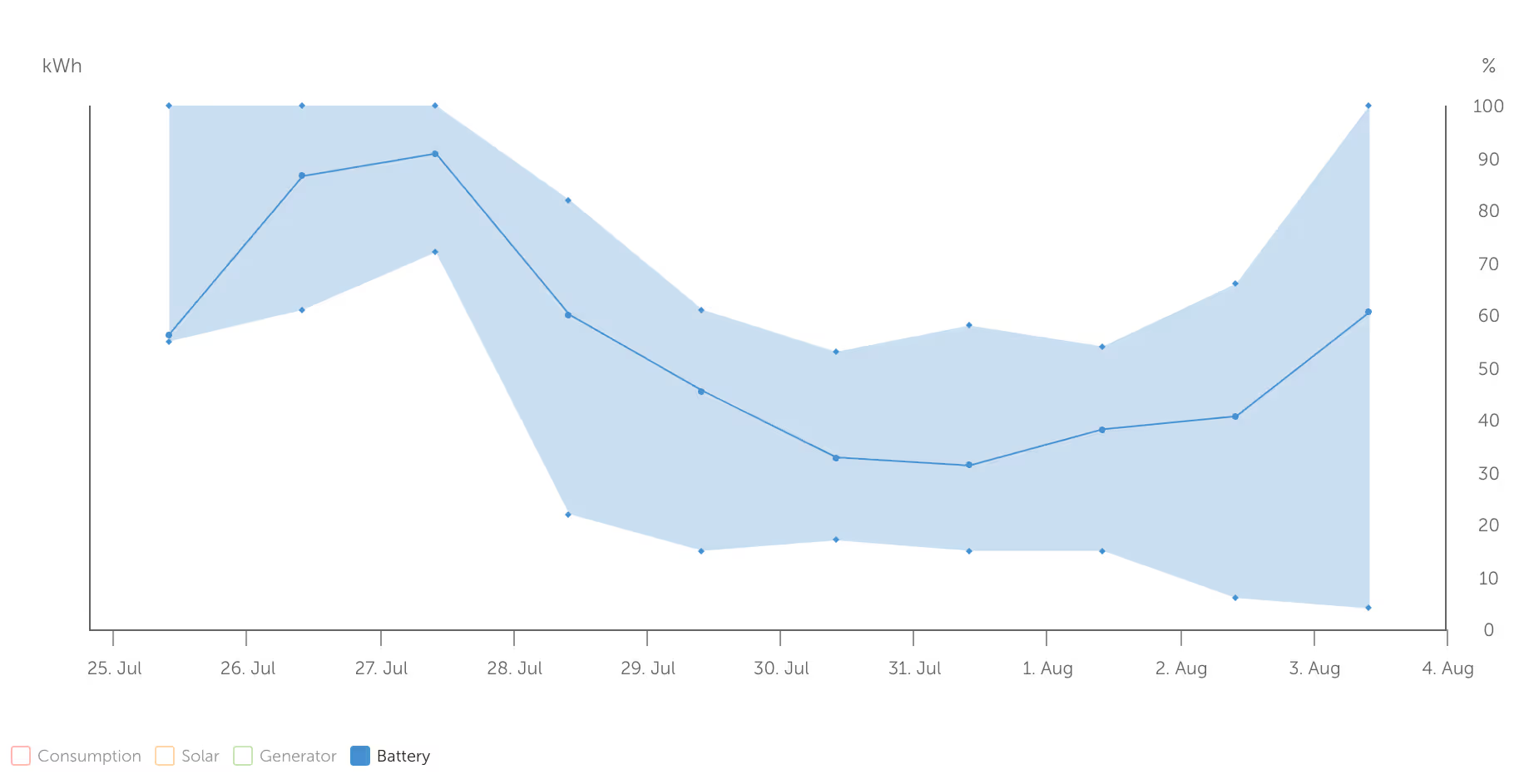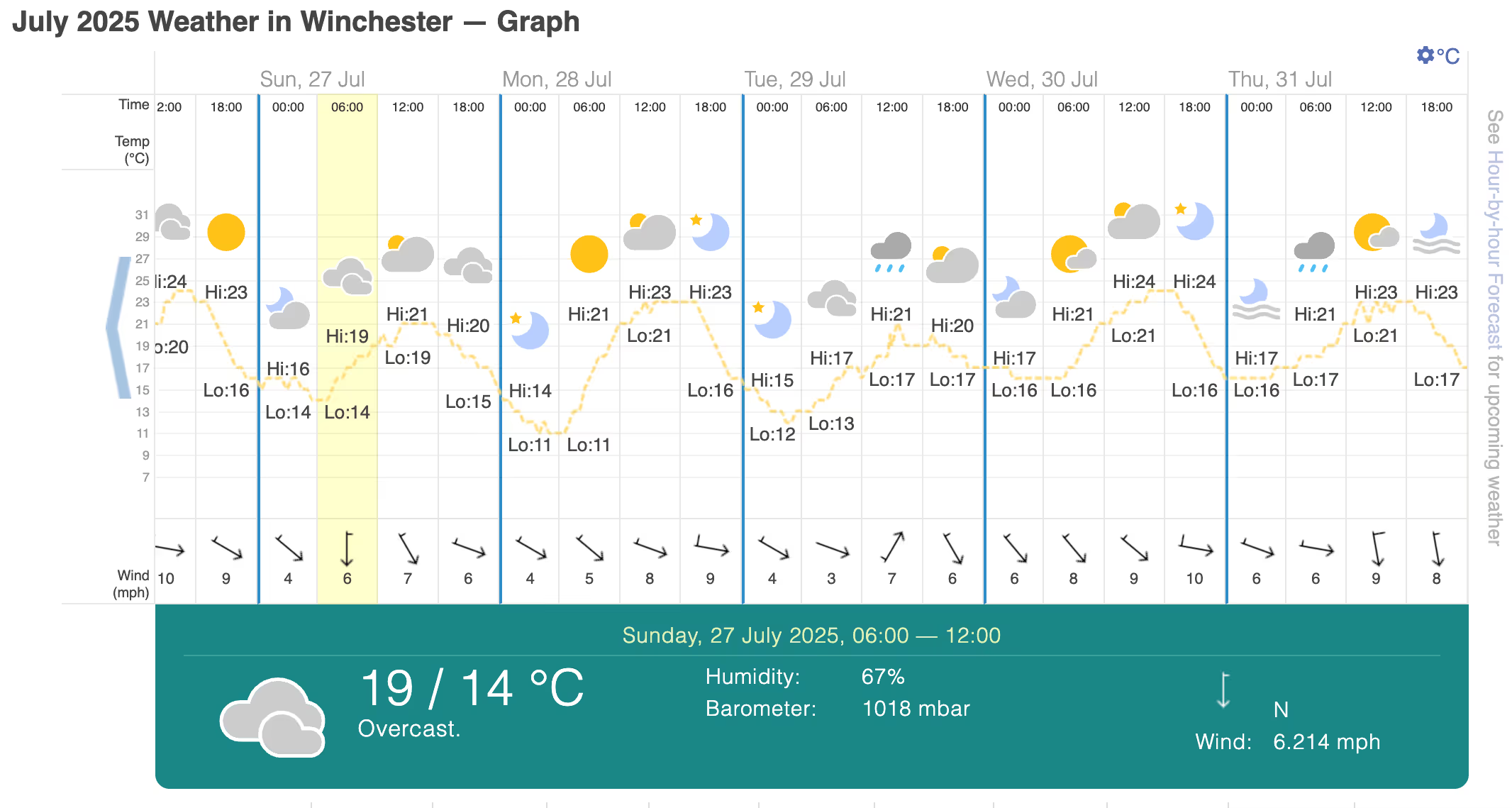Off-Grid Workshop
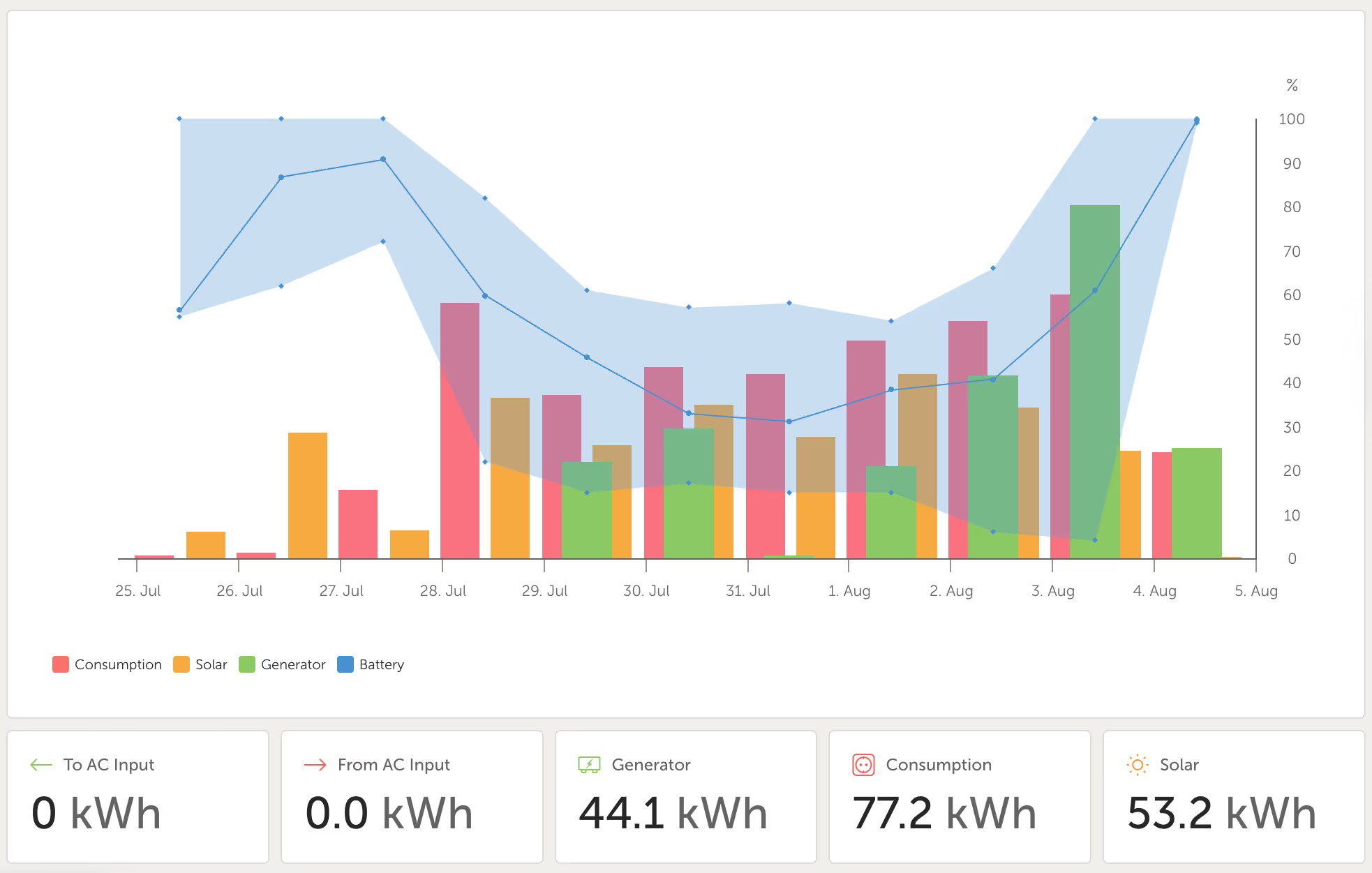
Project Overview
- Location: Container-based workshop
- Purpose: Power for tools, laptops, coffee machine, and general amenities
- System Design:
- 4 × 430 W solar panels (1.72 kWp total) mounted on the container roof
- Victron MultiPlus-II 8 kVA inverter/charger for AC conversion and load management
- 2 × BSL 5 kWh LiFePO₄ batteries with built-in fire extinguishing protection
- Full monitoring to track consumption, solar generation, and storage
Performance
From the monitoring data:
- Solar contribution: Averaged 5–8 kWh/day, peaking around 7.5 kWh on sunny days.
- Consumption: Workshop loads regularly reached 10–12 kWh/day, especially when using heavier tools and appliances.
- Generator support: Around 24 kWh of energy was supplied by the backup generator across the monitoring period, bridging the gap between solar generation and demand.
- Battery role: The two BSL batteries provided reliable buffering, discharging consistently each day and ensuring tools and amenities could run without interruption.
Weather Context
Looking at historic weather data for Winchester during this period, there were several overcast days with rainfall, which reduced solar output significantly. On clear days, solar production nearly matched the container’s daytime needs, but on cloudy days the load exceeded available solar and required generator top-up.
Lessons Learned
While the system has been highly reliable, the monitoring data suggests that:
- More solar capacity is needed. With only 1.72 kWp installed, generation fractionally bellow consumption levels on most days.
- Increasing to 8–10 panels (≈3.5–4.3 kWp) would dramatically reduce generator reliance and dusty environment needs to be taken into acount with periodic panel cleaning.
- The battery capacity (10 kWh total) was well-matched, enough to cover evening use and smaller loads, while the Victron MultiPlus-II easily handled peak tool surges and could also be used to run the other offices in the area.
Results
- Reliable, uninterrupted power supply for an off-grid workshop.
- Secure energy storage with BSL’s built-in fire suppression.
- Smooth integration of solar, batteries, generator, and inverter, all managed by Victron.
- A strong foundation that can be easily scaled up by adding more solar panels.
Conclusion
This case study highlights how containerised workshops can be made self-sufficient with a compact hybrid power system. Even without grid access, the combination of Victron MultiPlus-II technology and BSL safety-focused batteries ensures dependable power. The next step? Expanding the solar array to further reduce generator reliance and move closer to complete off-grid independence, cutting fuel bills and moving towards net zero targets.
Start Your Renewable Journey Now
